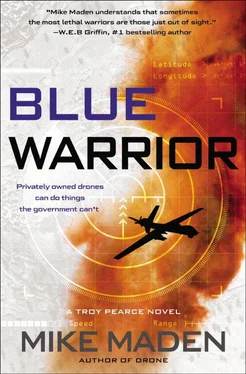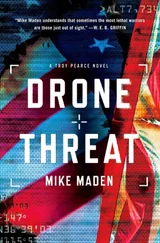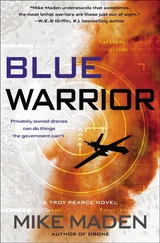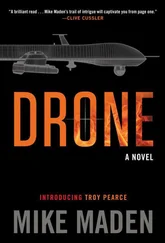“I want you to dirty the water,” he said. “Let’s roll out a campaign against Myers and her lapdog Pearce. Link them to Mossa and AQS, but discreetly. That should keep her distracted, and keep her away from Tanner.”
“Audience?”
“The national security establishment, of course. The usual suspects. CIA, NSA, FBI. But do that thing you do. Make it look like legitimate chatter from the bad guys.”
Bath hid her rage. She knew damn well how to plant false information on the web to impugn people. She’d practically invented the NSA’s handbook on the subject.
The Angel smiled. “I want to put Pearce and the others on Greyhill’s radar, too. I need Greyhill sweating every second that he doesn’t do something about this new ‘threat’ we’ve just uncovered.”
“Not a problem.” Bath was happy to oblige. People might get killed if Greyhill overreacted, but that was on him, not her. She was just the messenger. In her line of work, morality was a fiction she could ill afford.
 39
39 
Adrar des Ifoghas
Kidal Region, Northeastern Mali
9 May
The small band picked their way down through the shadows of the eastern slope while on the other side of the mountain the Mali army lay dead under the merciless afternoon sun.
After the battle that morning, Cella tended the few wounded Tuaregs while Mossa and his men dispatched the suffering survivors. They returned to the cool of the caves, ate again and drank, then Mossa led his men in the noonday prayers while Pearce and Early waited outside.
Pearce raised Ian on his recharged sat phone. Didn’t tell him about the battle, just that everything was on schedule. Got updates on Judy, who was comfortable but now restricted in her air base quarters. Cella’s daughter was already on a chartered flight to Rome.
He thought about Lisbon. Counted the years. Dorotea was a beautiful little girl. It was certainly possible. And those eyes.
First chance he got, he needed to talk to Cella.
After prayers, Mossa briefed Pearce. Mossa assured him that two devastating defeats in two days would send the Malians reeling back to Bamako. There’d be nothing to fear from them for a month, at least, and he’d be back well before then. But Mossa was no fool. He still posted guards, and rotated them frequently out of the scorching sun and back into the caves for rest, water, and food, waiting for the worst of the heat to pass before they began the next leg of their journey.
Mossa was wearing his indigo tagelmust , of course, but had swapped out his combat camouflage fatigues for a traditional blue kaftan and cloth pants, all in royal blue. Leather sandals had replaced his boots, too. Pearce wondered why the change.
Moctar and Balla volunteered to carry Pearce’s remaining Pelican case containing the M-25, Switchblade UAV, and firing tube. He couldn’t imagine them hauling his load on foot for the next six days, but then again, he didn’t know how he’d manage it by himself, either. But he couldn’t leave that technology behind. Too expensive, and too dangerous if the wrong people ever got ahold of it. He’d proven that already back in Anou. And, technically, it was still the property of the South African army, even if they hadn’t taken possession of it yet. He’d have to refund the Hybrid Quadrotor, of course, but at least he could truthfully report on its combat effectiveness.
Like Mossa, Moctar and Balla had rewrapped themselves in their tagelmust s. It was the Tuareg way. Both men were a decade younger than Pearce, but he knew that only because they had uncovered their faces the night before. Wrapped up again, they were ageless, mysterious, and fearsome.
“Moctar, a question.”
“Yes?” The young Tuareg had good English.
“Most Muslim women cover themselves, but not the Imohar women. Why is that?”
“Why would I want to cover my daughters’ heads? I want them to feel the wind in their hair and the sun on their faces, the way Allah intends.”
“Western women feel the same way. They refuse to be covered.”
Moctar laughed. “That is the difference between your people and mine. If I tell my women they shall be covered, then they shall be covered. But I give them the freedom to be uncovered because it pleases me. Your women don’t cover because it pleases them. Your women rule you. All your women wore hats before, yes?”
“Yes, quite often. Until the 1960s.”
“Women’s Liberation,” Moctar said. He pronounced it like a judgment rather than a fact. Pearce let it go.
Balla called out, pointing ahead. An RPG was slung over his shoulder, along with a pack carrying more HEAT rounds.
“And there is our transportation.” Mossa nodded at a small caravan of fourteen camels marching toward them, shimmering in the heat of the sand. Seven camels carried Tuareg gunmen, AKs slung on their laps. Seven other saddles were empty.
“Do you have a mechanical one of those?” Mossa joked, pointing at the camels.
“Actually, yes. It’s called an LS3—a Legged Squad Support System. It looks like a headless, skinless horse.”
“Truly? That would seem to be both a marvel and a nightmare,” Mossa said.
“I grew up mucking rich people’s horse barns. The LS3 has some advantages.”
“Mucking?”
“Shoveling shit.”
“The problem is the putting of the horse in a barn, not the shitting of the horse,” Moctar observed.
By the time they made it all the way down the mountain, the camels had arrived and were already kneeling. The camel driver saw Mossa and raced over. The two men embraced like old friends. Balla and Moctar began securing the Pelican case to a camel.
“Have you ever ridden one of these beasties?” Early asked.
“No,” Pearce said.
“You’re in for treat.”
“That’s what you said to me that time you tried to hook me up with that WNBA power forward.”
“Excuse me? I’d like to hear that story,” Cella said, chuckling.
“She was on a USO tour in Iraq. A big girl, let me tell you,” Early said, lifting his hand a foot above his head like a measuring stick. “About yea tall, and a French braid like a hawser, down all the way to the middle of her back. You know, from behind you could—”
“Forget it,” Pearce barked.
“Pearce! Early! Come!” Mossa beckoned them with his hand.
The six kneeling camels were still four-foot-tall mounds of muscle and very light brown hair, almost white. On top of each were wooden saddles with high slanted backs and elongated three-pronged forks where a stubby saddle horn should be. Each of the saddles was elaborately decorated with goat leather and brass cutouts in bright geometric patterns in bold colors, especially red and turquoise. The animals were further adorned with trappings of long leather strips and woven fabrics. The other Tuaregs remained mounted. Their hands were coal black, as were the small part of their faces he could see behind their veils.
Moctar pointed at Pearce’s camel. “Your ship of the desert, for a sea of sand,” he said. He laughed. “I heard that in a movie once.”
Pearce had ridden plenty of horses growing up in Wyoming. He’d even broken a few broncs in his youth—or at least tried to. He knew the key to riding an animal was to exude confidence. Nervous riders made nervous mounts. Pearce marched up to his camel, grabbed the fork, and hauled himself up on the stirrup, like he’d done it a thousand times before. The camel never flinched. None of them did. They were a serene bunch. The Zen masters of the Sahara. Pearce knew that a group of horses would have been far more skittish, especially around strangers.
Читать дальше

 39
39 











